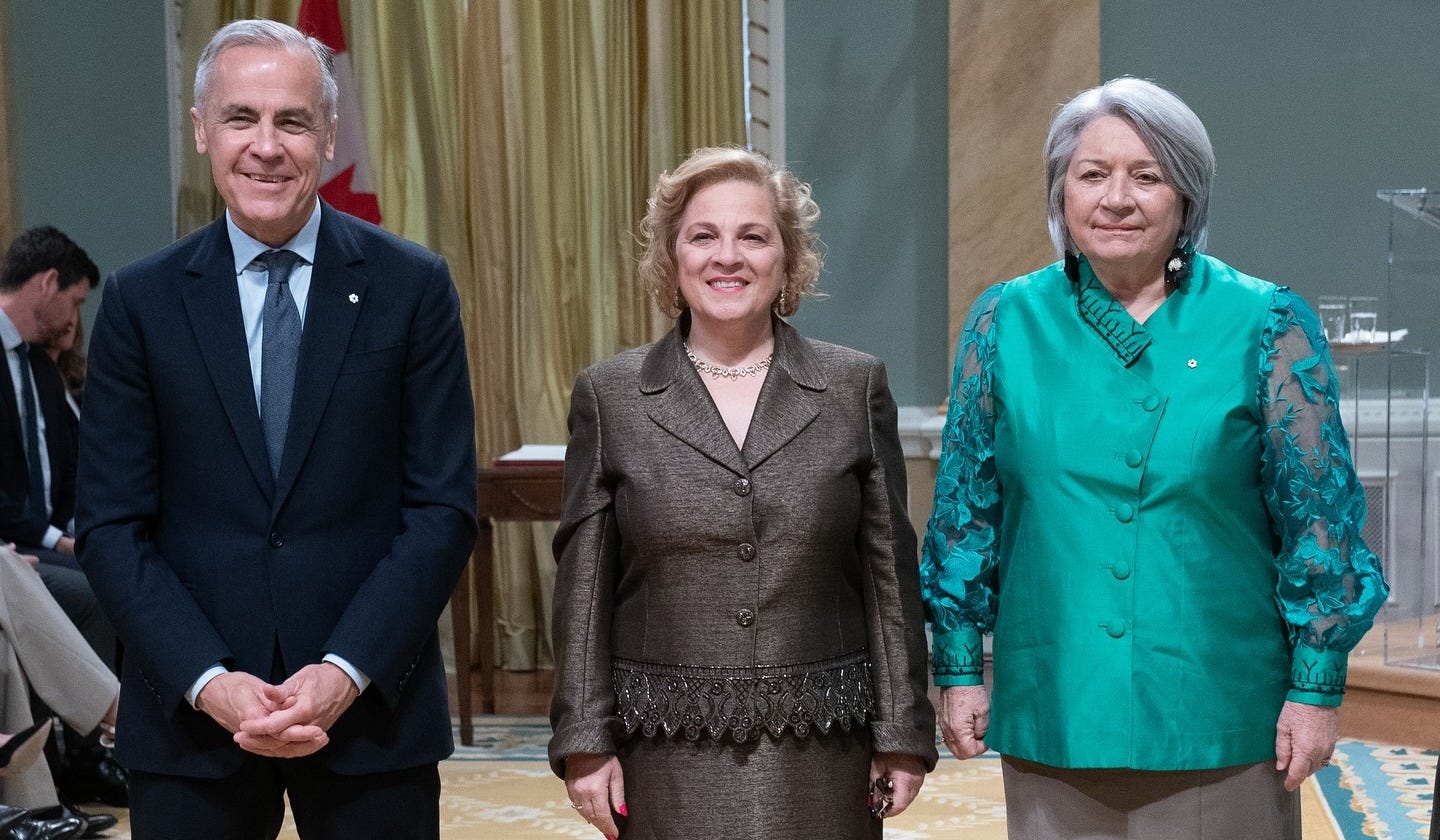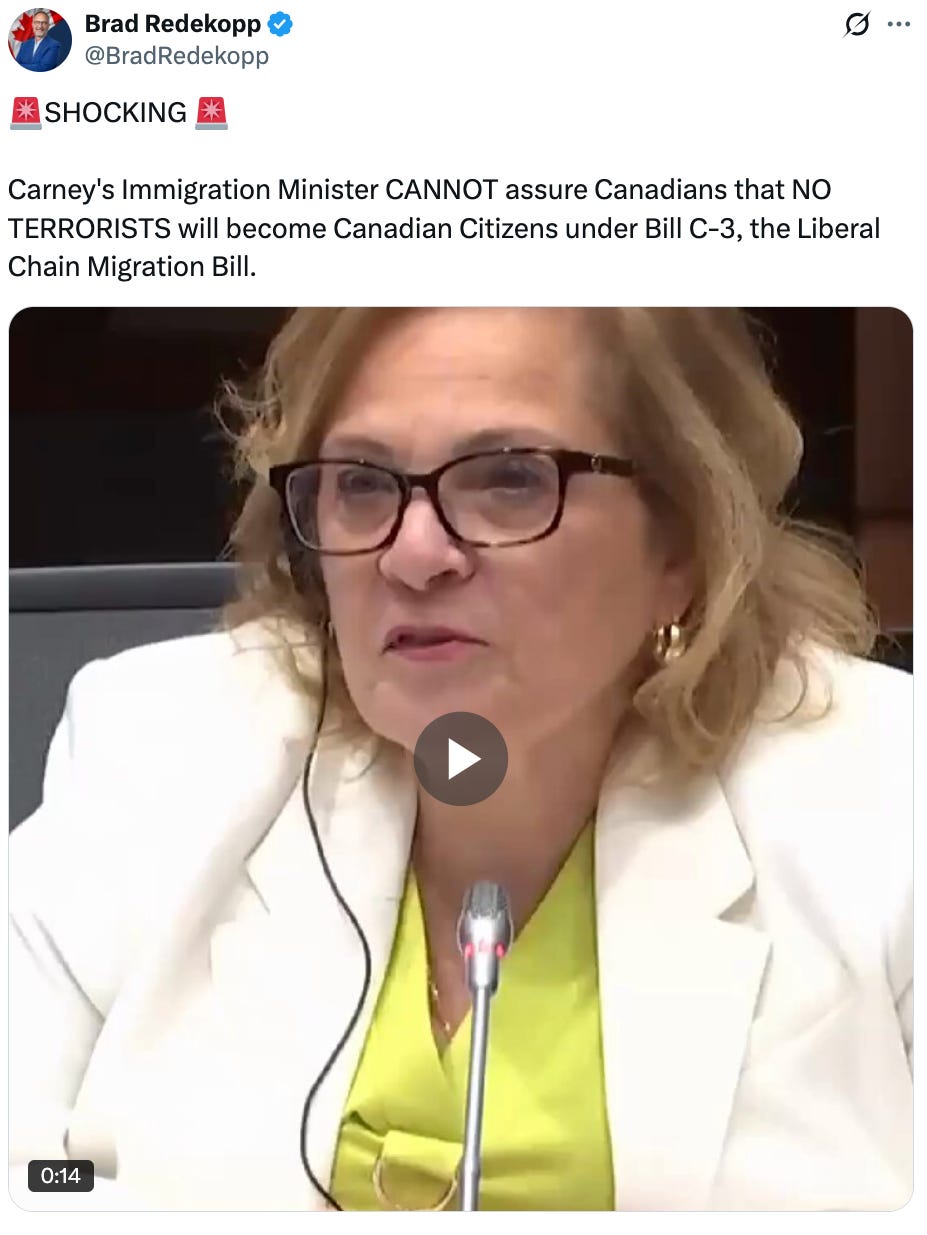Immigration minister dodges on criminal checks for 100K new citizens
Canada’s Immigration Minister has sidestepped questions on whether over 100,000 potential new citizens, beneficiaries of Bill C-3, will undergo criminal record checks or take citizenship tests.
Canada’s Immigration Minister has sidestepped questions on whether over 100,000 potential new citizens, beneficiaries of Bill C-3, will undergo criminal record checks, take citizenship tests, or even be required to speak an official language.
Conservative immigration critic Michelle Rempel Garner accused the Liberal immigration minister, Lena Diab, of using “word salad” to get around Conservatives’ direct questions about the potential for fraud and security threats in Bill C-3, during a parliamentary immigration committee on Thursday.
The bill would amend the Citizenship Act to grant Canadian citizenship to individuals born abroad who are descendants of immigrants who became Canadian citizens. Without the bill, there is a first-generation limit, meaning those born in another country are only automatically citizens if one parent was born in Canada.
The Liberals introduced the bill following the Ontario Superior Court of Justice’s finding that the first-generation limits in the Citizenship Act violated Charter equality and mobility rights. The Liberal government did not appeal the decision, opting instead to expand citizenship criteria.
During the committee, Diab said anyone demonstrating a substantial connection with parents who have been citizens in the country for at least three years (1,095 days) would be eligible.
Diab said it was “impossible” to know how many people would become Canadian citizens if the bill were to pass in its current form. However, in December of last year, the Parliamentary Budget Officer estimated that a previous iteration of the bill would grant citizenship to approximately 115,000 people over five years, at a cost to taxpayers of $20.8 million during the same period.
Conservative MPs Brad Redekopp and Rempel Garner asked Diab if she could assure Canadians that the new arrivals would be vetted, respect Canadian values, and speak one of the official languages.
Rempel Garner also questioned if the new additions would negatively impact Canada’s already weak housing market, healthcare system, and youth employment rate.
“We have a chain migration bill in front of us today, at a time when your department’s been issuing record numbers of all sorts of temporary foreign visas. We have a housing, jobs, housing, and health care crisis…where are they going to go?” Rempel Garner said.
Diab answered by repeatedly reading the information she had read at the beginning of the committee, a theme she continued nearly every time a Conservative asked a question.
“From January 2024 to July 2025…those were the interim measures that were implemented by the department. Department received over 4,200 applications individually,” Diab said. “IRCC saw no surge in the interim measures, nor did they see any surge happening in 2009 and 2015 when similar legislation was in place… a lot of these individuals are infants, and there are a lot of individuals who are already in Canada.”
When pressed by Bloc Québécois MP Alexis Brunelle-Duceppe about the number of individuals in Canada who would be affected by the bill, Diab did not answer. She only repeated that individuals “must show a substantial link” and dodged questions about how many children, compared to adults, would be affected.
Rempel Garner cast doubt on the claim that Immigration, Refugees and Citizenship Canada (IRCC) “saw no surge,” adding that IRCC also must not have seen a surge in 1.5 million people being added to the country with no place to live. She grilled the minister, asking if these individuals, added by the “chain migration bill,” would have a family doctor and a job during a youth employment crisis, or if they would be on government assistance.
Diab said there would be “requirements” for receiving aid, and individuals would pay taxes like other Canadian citizens.
Redekopp pointed out that in May 2022, Diab said that “fostering bilingualism was of personal priority” to her, but the bill lacks any language requirements tied to citizenship. Diab responded, saying that she “hopes” many of the children and infants granted citizenship will learn English or French.
Redekopp noted that the Liberals were creating this bill and could easily add security or language tests. Diab similarly did not commit to making adults granted citizenship take a citizenship test to ensure they understand Canadian values.
Diab said the bill was meant to protect Canadian values “to ensure that people who want to be Canadians because they value being Canadian are allowed to be Canadian.”
When asked what Canadian values are, Diab said that protecting official languages and helping each other are Canadian values, and that Canadian values are human values. Still, she would not commit to adding language tests to the citizenship eligibility bill.
Diab would not say whether terrorists or those with a criminal record would be granted citizenship, only that the bill would grant the right to citizenship to those who “already have the right to be citizens.”







Just when you thought having a drama teacher for prime minister couldn't get any worse...
Can we have this government charged with aiding and abetting and or an accessory to crime?